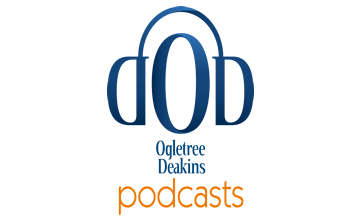Podcast: Play in new window | Download (Duration: 22:38 — 31.1MB) | Embed
Subscribe: Apple Podcasts | Spotify | TuneIn | More
In this episode of our California labor law podcast series, Maria Anastas and Daniel Adlong are joined by Karen Tynan to discuss the impact of the proposed revisions to Cal/OSHA’s COVID-19 Prevention Emergency Temporary Standards on traditional labor. The speakers address distinctions between vaccinated and unvaccinated employees, potential bargaining obligations, and privacy concerns arising from employee data.
